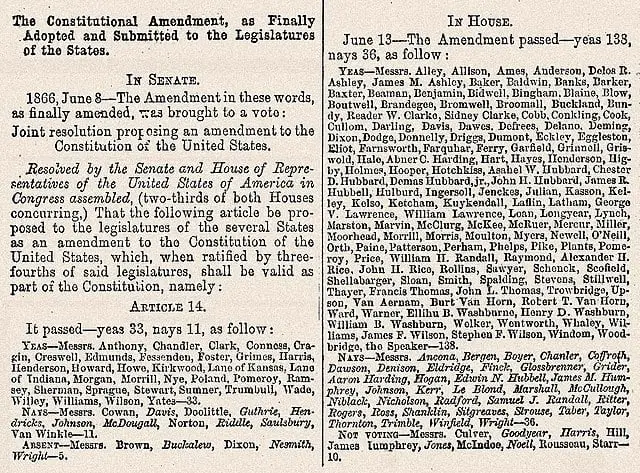Can USA President use the 14th Amendment for lifting the debt ceiling?
The 14th Amendment to the United States Constitution was ratified in 1868. It granted citizenship to all persons born or naturalized in the United States, including former slaves, and guaranteed them equal protection under the law.
The 14th Amendment has also been interpreted to include a clause that prohibits the federal government from “assuming or paying any debt or obligation incurred in aid of insurrection or rebellion against the United States.” This clause, known as the “public debt clause,” has been cited by some legal scholars as a possible way for the federal government to continue borrowing money even if Congress fails to raise the debt ceiling.
The debt ceiling is a legal limit on the amount of money that the federal government can borrow. It was established in 1917, and it has been raised numerous times since then. However, in recent years, the debt ceiling has become a political football, with Republicans and Democrats often using it as a bargaining chip in budget negotiations.
Legal Arguments
In 2023, the United States is expected to reach its debt ceiling in early June. If Congress does not raise the debt ceiling, the federal government will be unable to borrow any more money. This could lead to a default on the national debt, which would have a devastating impact on the economy.
Some legal scholars have argued that the 14th Amendment’s public debt clause allows the federal government to continue borrowing money even if Congress fails to raise the debt ceiling. They argue that the clause prohibits the federal government from repudiating its debts, even if those debts were incurred during a time of insurrection or rebellion.
Other legal scholars have argued that the 14th Amendment’s public debt clause does not apply to the debt ceiling. They argue that the clause was intended to prevent the federal government from paying debts that were incurred in support of the Confederacy during the Civil War.
The Supreme Court has never ruled on the question of whether the 14th Amendment’s public debt clause applies to the debt ceiling. If the Court were to rule that the clause does apply, it would allow the federal government to continue borrowing money even if Congress fails to raise the debt ceiling. This would prevent a default on the national debt and averted a potential economic catastrophe.


